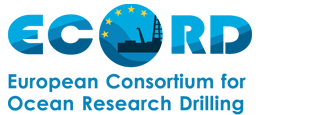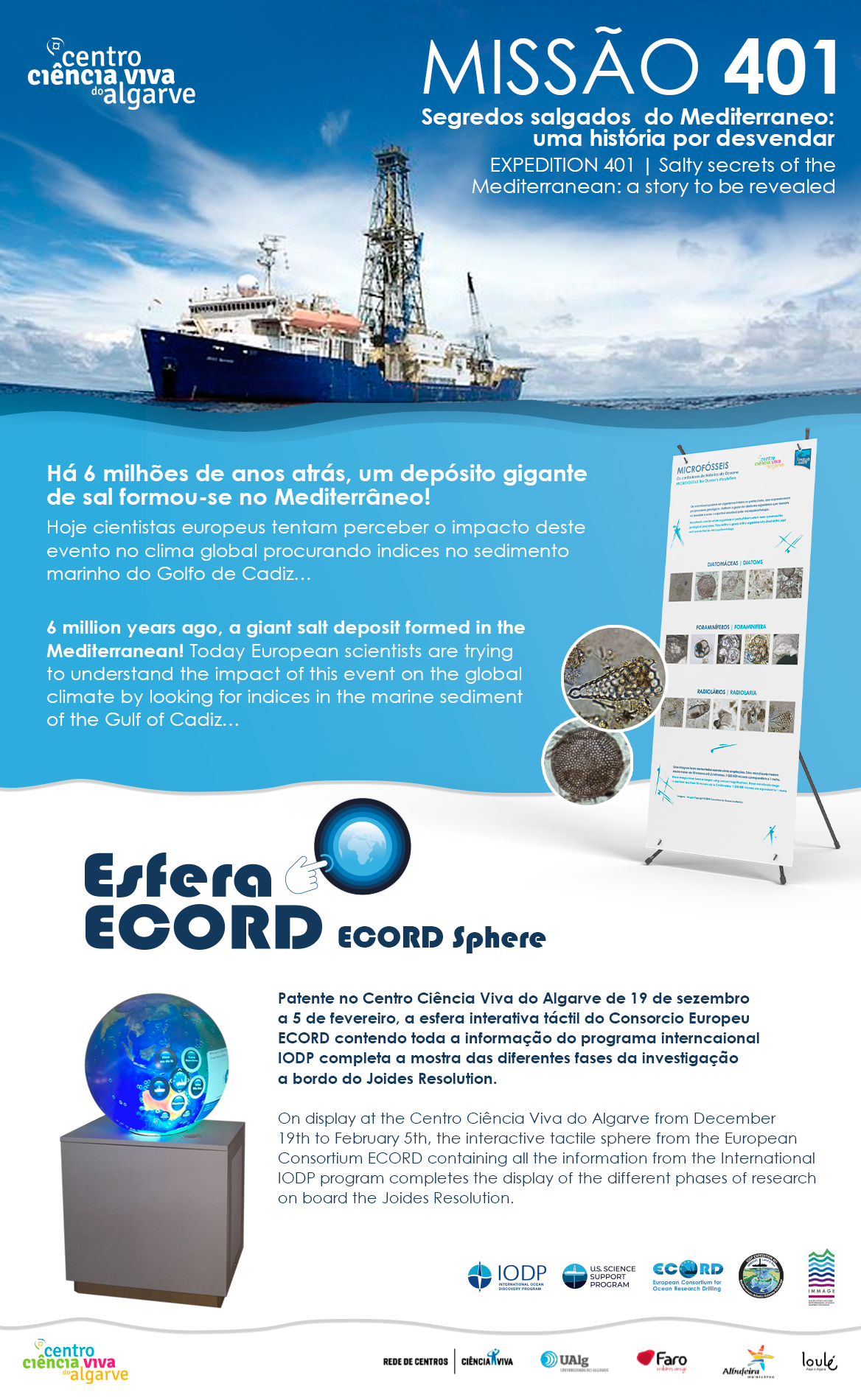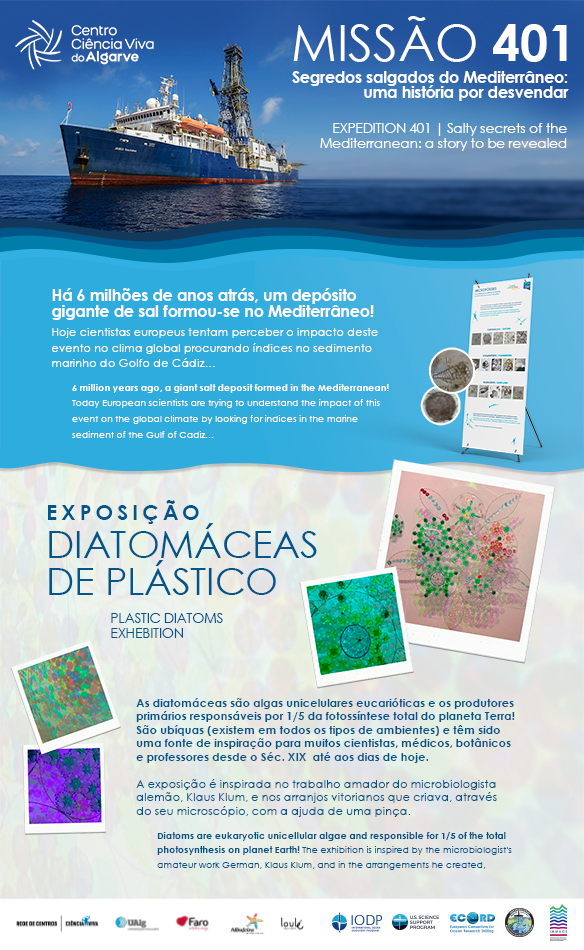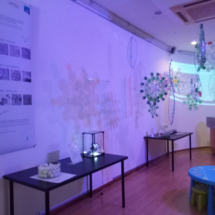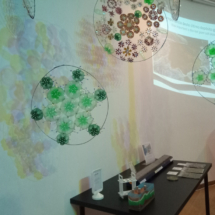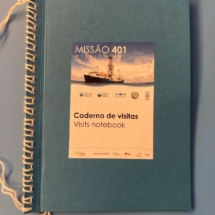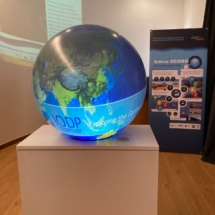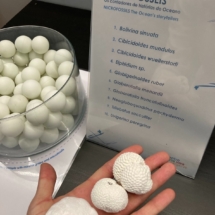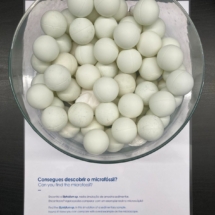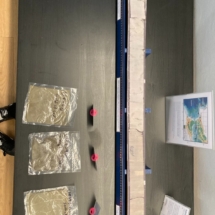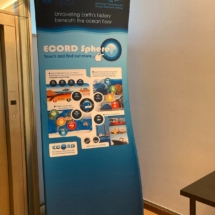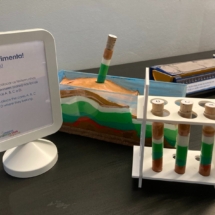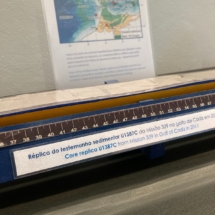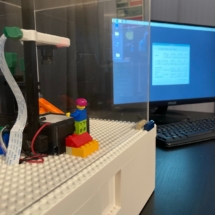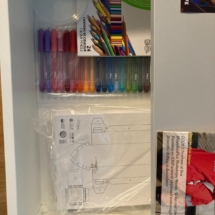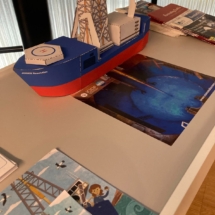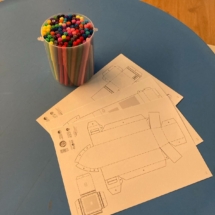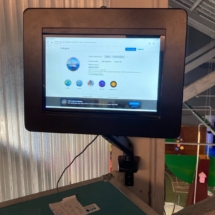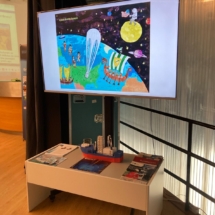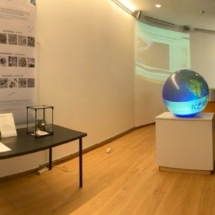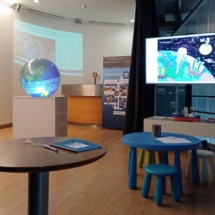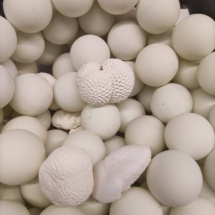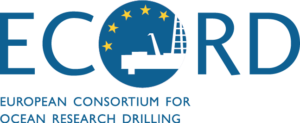ECORD at Algarve Living Science Center
IODP Expedition 401 | Salty secrets of the Mediterranean: a story to be revealed
The Temporary exhibition at Centro Ciência Viva do Algarve
By Cristina Veiga-Pires
ECORD Alternate delegate
Executive director of Centro Ciência Viva do Algarve
Taking advantage of Expedition 401 proximity to the Algarve coast, Centro Ciência Viva do Algarve (CCVALg) proposed to ECORD the creation of a temporary exhibition centered on the ECORD Sphere and the Expedition 401: Mediterranean-Atlantic Gateway Exchange. Upon ECORD’s approval of the loan for the ECORD Sphere, CCVAlg’s team embarked on developing and co-creating the exhibition in collaboration with ECORD outreach team, Portuguese ECORD representatives, the US Science Support Program, ICDP correspondents, and Co-chief Scientists.
The exhibition opened on 19 December 2023, featuring five activity tables surrounding the ECORD sphere, two projected presentations, and a tablet with real-time connection to ECORD’s social media. The activities were designed to document and explain various aspects and processes involved in ECORD programs. Beginning with a 50 cm long simplified paper model of the JOIDES Resolution, which was also available in smaller sizes for children to paint and assemble, visitors were introduced to the complexities of underground geology through a plasticine 3D model. A core replica, created with high-resolution pictures, was displayed alongside wet and dry deep-sea sediment from the Gulf of Cadiz, showcasing the studied material. Visitors then explored microfossils within sediment samples through a jar filled with ping-pong balls and 3D-printed microfossils, accompanied by a digital microscope observing true foraminifera microfossils and a poster presenting different types of microfossils. Additionally, a FlyPI microscope demonstrated the formation of salt crystals from evaporating saline waters, complemented by a piece of rocksalt from a local salt mine and a 3D-printed elevation model.
Throughout the exhibition, visitors engaged with a wall presentation summarizing the purpose and objectives of Expedition 401, co-designed with Master students from the University of Algarve, and viewed a small animation on the TV screen presenting the Portuguese translation of the children’s book “Uncovering Earth’s Secrets.”
By February 5, 2024, when the ECORD sphere was relocated to Italy, the temporary exhibition had attracted 1435 visitors, with around 30 participating in two online ship tours. Subsequently, until the end of February, an additional 1150 visitors experienced the transformed exhibition “Expedition 401,” featuring artistic representations of diatoms made from recycled plastic bottles, created by a local artist that also engaged visitors to made their own diatoms.
